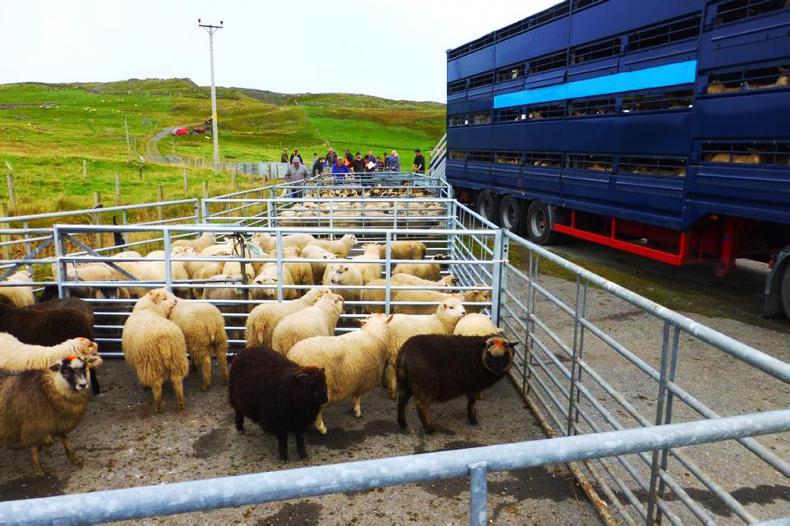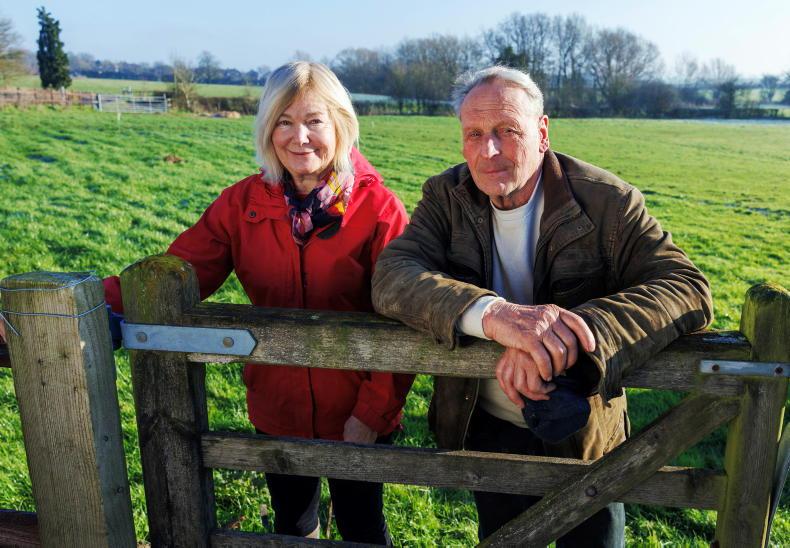Farmers in Northern Ireland and Britain will be afforded a similar level of protection from cheap food imports as farmers in the EU, after the UK government confirmed that it is leaving post-Brexit agricultural tariffs virtually unchanged.
The new range of tariffs will apply on imported goods into the UK from 1 January 2021.
It is a major departure from UK government policy in 2019, when it set out a range of possible tariffs to apply in the event of a no-deal Brexit. The original proposals would have seen tariffs on beef and poultry imports virtually halved, pork products at 10% to 20% of EU levels and import tariffs removed across a range of dairy produce.
Consultation
Following a UK government consultation on the issue and engagement with business leaders, UK trade secretary Liz Truss has confirmed that the UK will apply some simplifications (for example rounding down), but will effectively adopt EU tariffs across farm produce.
The current euro rate applying to a tariff will be changed to sterling using the average exchange rate over the last five years.
For example, for fresh and chilled beef, the current EU tariff is 12.8 % + €303.4/100kg.
Under the UK schedule, this will change to 12% + £253/100kg. So, if an importer has beef valued at £8/kg, they will be faced with an additional UK import tariff of nearly £3.50/kg.
Other sectors where EU tariffs have generally been replicated within the UK include fishing and cars.
However, across thousands of household and general-purpose goods, where EU tariffs are typically at low levels, the UK will either simplify these tariffs or, if under 2%, remove them completely.
Danger on horizon
While the UK farming industry will welcome the announcement on tariffs, there are still many dangers on the horizon. The UK is on the hunt for post-Brexit free trade deals and could offer up tariff-free access to its food market as part of these agreements.
It could also offer tariff-rate quotas (TRQs) in certain sectors, as a means of managing domestic prices. In the no-deal Brexit plan from March 2019, a 230,000t TRQ was on the table for beef that could have been accessed by any country around the world.
As part of its announcement on future tariffs, the UK government has not confirmed whether TRQs will be available.
“The government will publish further advice on tariff-rate quotas later in 2020,” states government guidance.
For farmers in the Republic of Ireland, with the UK effectively reciprocating EU tariffs from 1 January 2021, it increases the pressure to get a free trade deal done between the EU and UK by the end of this year.
For Northern Ireland farmers, they are guaranteed unfettered access to the market in Britain, while the Irish protocol as part of the UK-EU withdrawal agreement also gives them access to the EU market.
Read more
Farmer concerns ignored on no-deal tariffs
Cheap import concerns in UK egg sector
Farmers in Northern Ireland and Britain will be afforded a similar level of protection from cheap food imports as farmers in the EU, after the UK government confirmed that it is leaving post-Brexit agricultural tariffs virtually unchanged.
The new range of tariffs will apply on imported goods into the UK from 1 January 2021.
It is a major departure from UK government policy in 2019, when it set out a range of possible tariffs to apply in the event of a no-deal Brexit. The original proposals would have seen tariffs on beef and poultry imports virtually halved, pork products at 10% to 20% of EU levels and import tariffs removed across a range of dairy produce.
Consultation
Following a UK government consultation on the issue and engagement with business leaders, UK trade secretary Liz Truss has confirmed that the UK will apply some simplifications (for example rounding down), but will effectively adopt EU tariffs across farm produce.
The current euro rate applying to a tariff will be changed to sterling using the average exchange rate over the last five years.
For example, for fresh and chilled beef, the current EU tariff is 12.8 % + €303.4/100kg.
Under the UK schedule, this will change to 12% + £253/100kg. So, if an importer has beef valued at £8/kg, they will be faced with an additional UK import tariff of nearly £3.50/kg.
Other sectors where EU tariffs have generally been replicated within the UK include fishing and cars.
However, across thousands of household and general-purpose goods, where EU tariffs are typically at low levels, the UK will either simplify these tariffs or, if under 2%, remove them completely.
Danger on horizon
While the UK farming industry will welcome the announcement on tariffs, there are still many dangers on the horizon. The UK is on the hunt for post-Brexit free trade deals and could offer up tariff-free access to its food market as part of these agreements.
It could also offer tariff-rate quotas (TRQs) in certain sectors, as a means of managing domestic prices. In the no-deal Brexit plan from March 2019, a 230,000t TRQ was on the table for beef that could have been accessed by any country around the world.
As part of its announcement on future tariffs, the UK government has not confirmed whether TRQs will be available.
“The government will publish further advice on tariff-rate quotas later in 2020,” states government guidance.
For farmers in the Republic of Ireland, with the UK effectively reciprocating EU tariffs from 1 January 2021, it increases the pressure to get a free trade deal done between the EU and UK by the end of this year.
For Northern Ireland farmers, they are guaranteed unfettered access to the market in Britain, while the Irish protocol as part of the UK-EU withdrawal agreement also gives them access to the EU market.
Read more
Farmer concerns ignored on no-deal tariffs
Cheap import concerns in UK egg sector









SHARING OPTIONS